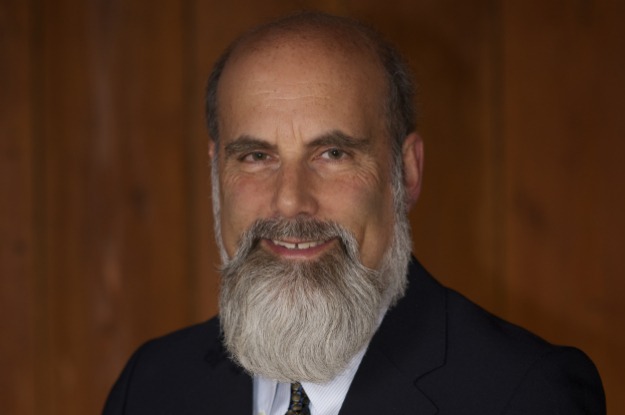
Matthew Scott, President of the Carnegie Institution for Science, will deliver the next lecture in Janelia’s Dialogues of Discovery public lecture series. Scott’s talk, “Exploring the Genes that Built You,” is on Wednesday, September 16 at 7:00 p.m.
All Dialogues of Discovery lectures are free and open to the public, but tickets are required for admission, and seating is limited to 250 people.
Exploring the Genes that Built You
As animals grow from single-celled eggs, the cells become more numerous and diversify. Cells differentially activate genes to begin acquiring different roles and fates, forming tissues and organs. Communication systems coordinate cells so that each plays its part and the right numbers and kinds of cells are formed at the right locations at the right times. Polarizing influences organize groups of cells so that asymmetries, such as the mirror-image forms of left and right hands, can grow properly.
Over many years it has become apparent that the molecular machinery underlying all these events, the genes and proteins that control them, are remarkably conserved during evolution. Thus, genes required to form muscles and nerves often are recognizably similar in organisms whose common ancestor existed half a billion years ago. This means that animal biology, and even plant and microbe biology, is far more relevant to understanding human biology than was apparent from looking at the diversity of life. That, in turn, means that it is possible to take what has been learned from a wide variety of organisms, apply the knowledge to human biology, and arrive at insights into medical problems such as birth defects, cancer, and degenerative disease. This talk will explore how experiences of this sort have informed medicine and provided new insights into our biological history.
About Matthew Scott
Scott was appointed the tenth president of the Carnegie Institution for Science in 2014. Prior to his Carnegie appointment, he was Professor of Developmental Biology, Genetics, Bioengineering, and Biology at the Stanford University School of Medicine and a Howard Hughes Medical Institute investigator.
Scott did his undergraduate and graduate work at the Massachusetts Institute of Technology, then moved to Indiana University for his postdoctoral work. After setting up his own lab at the University of Colorado, Boulder, he went to Stanford in 1990 to join the newly formed Department of Developmental Biology and the Department of Genetics. His research focused on genes that control development, and how damage to these genes leads to birth defects, cancer, and neurodegeneration. He discovered the “homeobox, “an evolutionarily conserved component of many genes that controls development. His lab group discovered the genetic basis of the most common human cancer, basal cell carcinoma, and of the most common childhood malignant brain tumor, medulloblastoma.
Scott served as Associate Chair and Chair of the Department of Developmental Biology for a total of six years. He chaired the multidisciplinary Bio-X program at Stanford from 2001-2007 and was Co-chair of the Center for Children’s Brain Tumors. He is a member of the American Academy of Arts and Sciences, the National Academy of Sciences, and the Institute of Medicine, and he served as president of the Society for Developmental Biology. His awards include the Passano Award (1990), the Conklin Medal of the Society for Developmental Biology (2004), and the Pasarow Award in Cancer Research (2013).
More Information
Past Dialogues of Discovery speakers have included Princeton University President Emerita Shirley Tilghman, Janelia group leader Luke Lavis; Janelia group leader Gwyneth Card; HHMI investigator Joseph DeRisi from the University of California, San Francisco; John P. Donohue from the Institute of Brain Science at Brown University; Janelia group leader Ulrike Heberlein; Jeremy Nathans, HHMI investigator at Johns Hopkins University; Cori Bargmann, HHMI investigator at Rockefeller University; Jennifer Tour Chayes, Managing Director at Microsoft Research; Sean Eddy, Nobel laureate Eric Betzig, and Karel Svoboda, group leaders at Janelia; Sir Paul Nurse, President of The Royal Society; Roger Perlmutter, President of Merck Research Laboratories; and Leslie Vosshall, HHMI investigator at Rockefeller University.
The Carnegie Institution for Science has been a pioneering force in basic scientific research since 1902. It is a private, nonprofit organization with six research departments throughout the United States. Carnegie scientists are leaders in plant biology, developmental biology, astronomy, materials science, global ecology, and Earth and planetary science.
